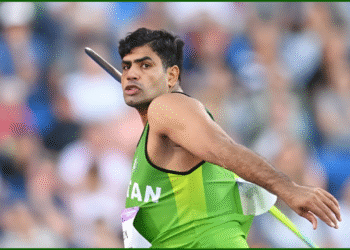The saga of Drake versus Kendrick Lamar has taken a sharp turn from the mic to the courtroom, with Universal Music Group (UMG), Drake’s own label, delivering a stinging rebuke in its latest legal move. On Monday, UMG filed a motion to dismiss a defamation lawsuit brought by the Canadian rap titan over Kendrick Lamar’s chart-topping diss track “Not Like Us,” arguing that Drake’s legal woes stem from a self-inflicted wound: a rap battle he provoked and decisively lost.
The motion, lodged in New York’s Southern District Court, doesn’t mince words. “He lost a rap battle he provoked and in which he willingly participated,” UMG’s filing declares, painting Drake’s lawsuit as little more than a bruised ego’s cry for relief. The motion, lodged in New York’s Southern District Court, doesn’t mince words. “He lost a rap battle he provoked and in which he willingly participated,” UMG’s filing declares, painting Drake’s lawsuit as little more than a bruised ego’s cry for relief. “ wounds.” The label asserts that the case lacks merit and should be tossed out with prejudice, effectively slamming the door on any future refiling.
Drake’s legal salvo, originally launched in January, accuses UMG of defamation and harassment for its role in promoting “Not Like Us.” Released in May 2024, the track became a cultural juggernaut, topping charts and snagging five Grammy Awards, including Song of the Year. Lamar’s lyrics, which label Drake a “certified pedophile” among other barbs, are at the heart of the dispute. Drake claims the song’s incendiary accusations, paired with its cover art—an aerial shot of his Toronto mansion marked with sex offender tags—incited real-world threats, including a shooting outside his home that left a security guard gravely injured.
UMG, however, isn’t buying it. The label argues that “Not Like Us” is pure “rhetorical hyperbole,” a hallmark of rap’s diss track tradition, not a factual indictment ripe for defamation claims. They point to Drake’s own history of lyrical warfare, noting that he’s slung similar mud at Lamar—like allegations of domestic abuse in his own diss “Family Matters”—without batting an eye. “Drake has been pleased to use UMG’s platform to promote tracks leveling similarly incendiary attacks,” the motion states, calling out what they see as a double standard.
Adding salt to the wound, UMG highlights Drake’s past advocacy for artistic freedom. In 2022, he signed a petition decrying the use of rap lyrics as literal evidence in legal cases. “Drake was right then and is wrong now,” the filing quips, suggesting his current stance flips his own principles when the heat’s on him.
Drake’s camp isn’t backing down. Lead attorney Michael J. Gottlieb fired back, framing UMG’s dismissal push as a dodge. rap beef but UMG’s alleged recklessness in amplifying a track they knew could spark harm.
The feud itself, which erupted in early 2024, saw both artists trade blows across multiple tracks, but “Not Like Us” landed the knockout punch in the public’s eyes. Its viral success—bolstered by Lamar’s Super Bowl LIX performance—cemented Lamar as the victor in a rivalry stretching back over a decade. Now, with UMG’s motion on the table, the question shifts: will the courts see this as a case of corporate overreach or just a rapper licking his wounds?
For now, the battle rages on—not with bars, but with briefs. As the legal dust settles, one thing’s clear: in hip-hop, losing a beef might sting, but suing over it could leave a deeper mark.


















































